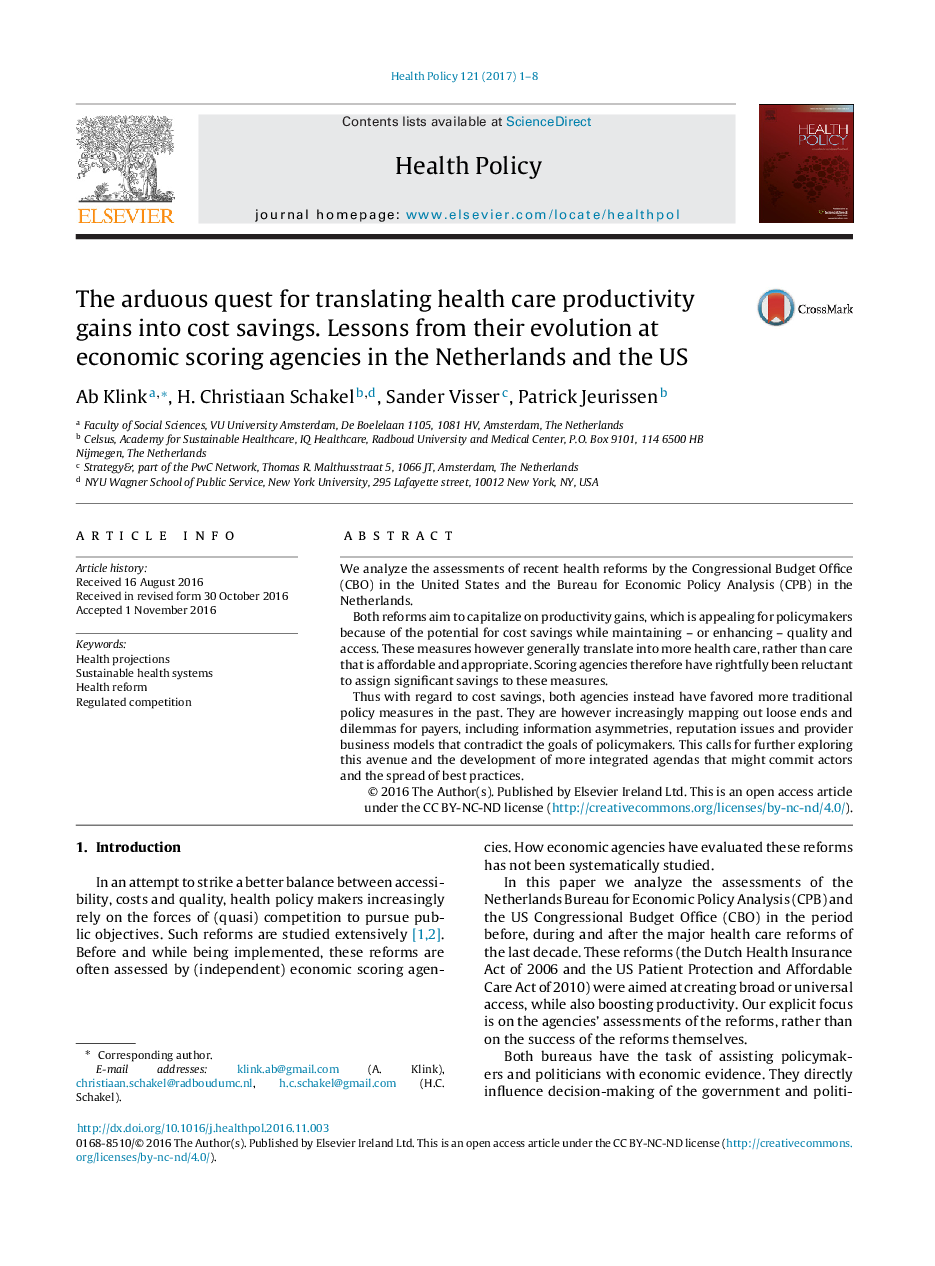| Article ID | Journal | Published Year | Pages | File Type |
|---|---|---|---|---|
| 5723333 | Health Policy | 2017 | 8 Pages |
â¢The US and Netherlands health reforms of the past decade intended to increase efficiency.â¢Economic scoring agencies have however been reluctant to assign cost savings to efficiency measures.â¢More recently, both agencies increasingly map out obstacles to capture efficiency gains.â¢This calls for further developing (research) agendas of appropriate (and efficient) care.
We analyze the assessments of recent health reforms by the Congressional Budget Office (CBO) in the United States and the Bureau for Economic Policy Analysis (CPB) in the Netherlands.Both reforms aim to capitalize on productivity gains, which is appealing for policymakers because of the potential for cost savings while maintaining - or enhancing - quality and access. These measures however generally translate into more health care, rather than care that is affordable and appropriate. Scoring agencies therefore have rightfully been reluctant to assign significant savings to these measures.Thus with regard to cost savings, both agencies instead have favored more traditional policy measures in the past. They are however increasingly mapping out loose ends and dilemmas for payers, including information asymmetries, reputation issues and provider business models that contradict the goals of policymakers. This calls for further exploring this avenue and the development of more integrated agendas that might commit actors and the spread of best practices.
